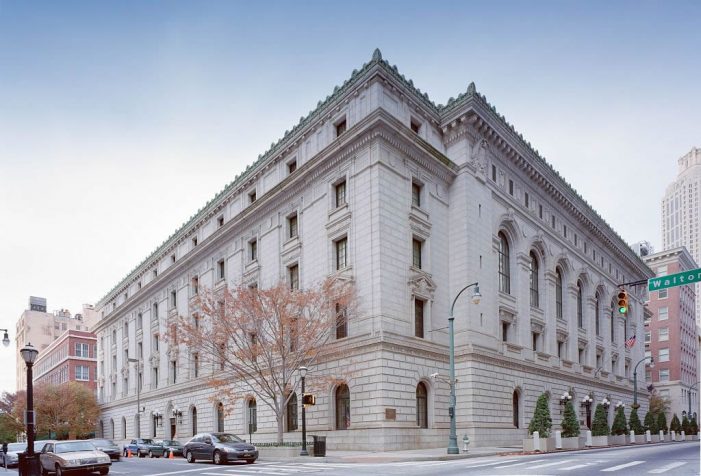By Jim Saunders, The News Service of Florida
TALLAHASSEE — After seeking help from the Florida Supreme Court on the meaning of the word “riot,” a federal appeals court Monday overturned an injunction against a 2021 state law aimed at cracking down on violent demonstrations.
A three-judge panel of the 11th U.S. Circuit Court of Appeals said the law is not unconstitutionally vague and overbroad and would not affect peaceful protesters. Civil-rights groups contended the measure could lead to peaceful protesters facing criminal charges when demonstrations turn violent.
Uncertain about how to interpret the word “riot” in the law, the federal appeals court last year asked for an opinion from the Florida Supreme Court — a relatively unusual move known as certifying a question to the state court. Justices in June issued an opinion saying peaceful protesters are not threatened by the law.
Drawing from that opinion, the appeals-court panel Monday overturned a preliminary injunction that Chief U.S. District Judge Mark Walker issued to block the law in 2021.
“The Florida Supreme Court has now confirmed that the riot statute does not attach to peaceful conduct,” said the panel’s decision, written by Judge Jill Pryor and joined by Judges Elizabeth Branch and Ed Carnes. “A protestor cannot be prosecuted under the riot statute if she is merely found within or alongside a group that turns violent or engages in violence. Instead, the statute requires that the protestor act with the intent to assist others’ violent conduct. Mere attendance at a violent protest is not enough. At the very least, a person must intend to assist others’ violence within a violent public disturbance.”
The decision also said that as “the Supreme Court of Florida has explained, for a protestor to be criminally liable under the statute, the state must prove that the protestor acted with violence or intended to assist another’s violence. Peaceful protest is categorically outside the statute’s bounds.”
Gov. Ron DeSantis championed the controversial law after nationwide protests following the 2020 death of George Floyd, a Black man who was killed by a Minneapolis police officer.
The law says that a “person commits a riot if he or she willfully participates in a violent public disturbance involving an assembly of three or more persons, acting with a common intent to assist each other in violent and disorderly conduct” that results in an injury to another person, property damage or “imminent danger” of injury or property damage.
Several groups, such as Dream Defenders and the Florida State Conference of the NAACP, challenged the law on First Amendment grounds and sought a preliminary injunction.
In granting an injunction, Walker pointed to concerns about vagueness of the law, which includes felony penalties.
“Though plaintiffs claim that they and their members fear that it (the law) will be used against them based on the color of their skin or the messages that they express, its vagueness permits those in power to weaponize its enforcement against any group who wishes to express any message that the government disapproves of,” Walker wrote. “Thus, while there may be some Floridians who welcome the chilling effect that this law has on the plaintiffs in this case, depending on who is in power, next time it could be their ox being gored.”
But in its June opinion, the Florida Supreme Court agreed with DeSantis and the Jacksonville Sheriff’s Office, another defendant in the lawsuit, that a “peaceful protester, under the most natural reading of the statute, is no rioter.”
“At bottom, the question is whether that law applies to a person who is present at a violent protest, but neither engages in, nor intends to assist others in engaging in, violent and disorderly conduct. And the answer is: no, it does not,” the Supreme Court’s 28-page main opinion said.


A riot is kinda like porn. You know it when you see it.
So… some of the same people who can’t define the term “woman” can’t define the term “riot” either. Who’d a thunk it?
“Civil-rights groups contended the measure could lead to peaceful protesters facing criminal charges when demonstrations turn violent.” ……………….. AS THEY SHOULD. Protesters SHOULD be arrested and do Jail Time (even if it is just 10 Days) if they Block a Road, keep someone from passing them on the Sidewalk, block a Business, Damage Property, Injure a Person, spit on someone, etc.
George Floyd died from complication of a drug overdose. The officers actions did not kill him.